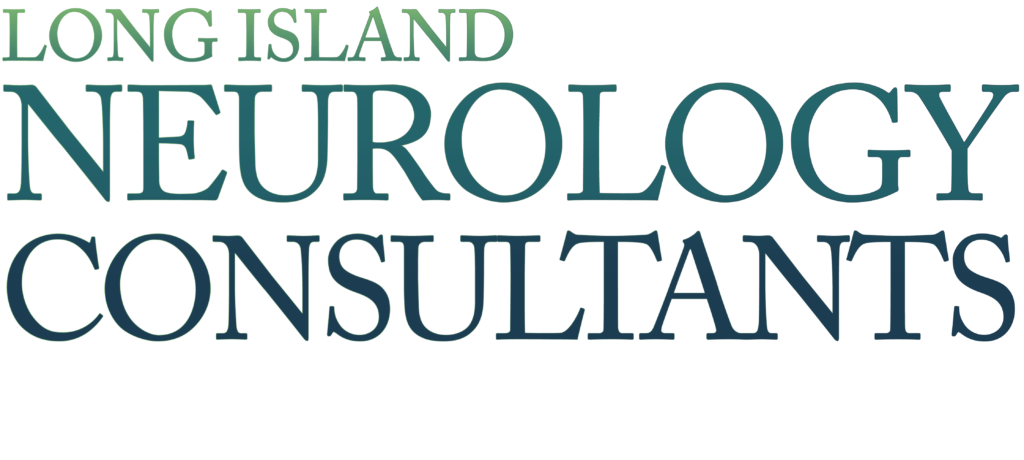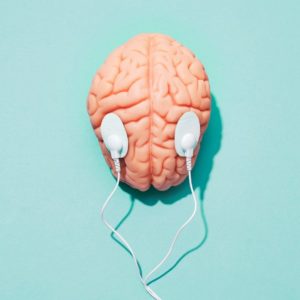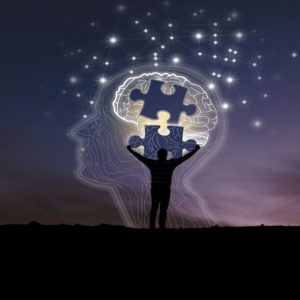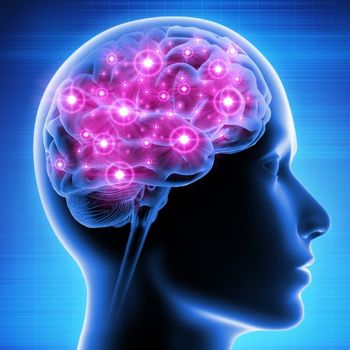Welcome To LI Neurology Dementia Care on Long Island

Fill Out This Form For Dementia Care On Long Island
How Long Can Dementia Last?
Long Island Neurology Consultants Dementia Care on Long Island specializes in the diagnosis and treatment of disorders of the brain, spinal cord, nerves and muscles. We specialize in diagnosing and treating neurological disorders at Long Island Neurology Consultants. Our team of board-certified neurologists and physician assistants combines quality care and experience to work with each patient. Our goal is to enrich the quality of life for our patients. We see patients and perform neurological testing at our offices in Lynbrook and Hewlett.
What Conditions Can A Neurologist Diagnose?

A neurologist diagnoses and treats conditions of the brain, spinal cord, nerves and muscles. The field of neurology was born in 1824 when Jean-Pierre Falret presented a report. To the French Academy of Sciences describing 10 patients who had lesions in different parts of their brains that resulted in specific behavioral and mental changes. The neurologists of today are concerned with the diagnosis and treatment of disorders from multiple sclerosis. A disease in which abnormal patches form on the brain and spinal cord, to Alzheimer’s Disease, where memory is lost as nerve cells become damaged or die. This article will explore some of these conditions. If you have more questions about these disorders and their diagnosis, please contact our office for a Dementia Care on Long Island.
Impaired Movement: Parkinson’s Disease
Parkinson’s disease is a progressive disorder of the nervous system that affects. Movement, sleep, and mood as well as other functions of the body. People afflicted with this condition either have tremors or rigidity in various parts of their bodies due to damage to a certain area of the brain. The symptoms are caused by the loss and death of neurons that make dopamine, which is a neurotransmitter in these areas of the brain. Drugs have been developed to help with some Parkinson’s disease symptoms; however, there is no positive treatment for it yet.
Dementia Care On Long Island Multiple Sclerosis
Multiple sclerosis (MS) is a disease of the late 20th and early 21st centuries, in which patches form on the nerves. These patches are made up of inflammatory cells that produce scar tissue around them. The damage and scarring interfere with nerve impulses going to and from the brain causing problems. Such as visual disturbances, weakness, numbness, and difficulty walking. There is no cure for multiple sclerosis; however, many treatments have been developed to help the symptoms such as medications and rehabilitation.
Tumors: Brain Tumors
A tumor is a mass of irregularly shaped cells that are growing abnormally. Most tumors occur in the body, while others form on the skin or in the organs. These abnormal growths can cause serious problems if not treated right away. The causes of brain tumors are genetic and environmental factors such as exposure to radiation, brain injury, or even some chemicals like certain medications or insecticides. Tumors can lead to neurological symptoms that will impact a person’s thinking and memory as well as physical movement. Depending on the type of tumor and its location in the brain. There are many treatments that can effectively treat such growths.
Brain Injuries: Traumatic Brain Injury & Stroke
Injury to a portion of the brain due to head injury or stroke may result in neurological symptoms. Such as loss of memory and/or speech problems that may affect daily functioning. They can also occur on their own and be caused by disease or infection, multiple sclerosis (MS) or tumor.
Brain injuries are usually treated with rehabilitation therapy to give patients the skill they need to cope with deficits in mental and physical functioning. Stroke patients may receive rehabilitation that focuses on speech, cognitive skills, or functions.
Contact Our Office For Dementia Care On Long Island
Should you have concerns about any of the conditions above, please don’t hesitate to schedule an appointment with our Dementia Care on Long Island. We offer the best memory care in Long Island. Our office can be reached by phone or by visiting our appointments page.
Fill Out This Form For ALS Treatment Rockville Centre NY
How Long Can Dementia Last?

Dementia refers to diseases associated with memory loss and mental function deterioration. Dementia is a progressive disease that worsens over time and occurs due to physical changes in the brain. The progression of dementia depends on the underlying cause and can progress rapidly for one person while taking years for another to reach an advanced stage. Symptoms of dementia can be addressed through Dementia Care on Long Island. At Long Island Neurology Consultants, our team can diagnose and treat symptoms of multiple types of dementia.
Types Of Dementia
Some of the most common forms of dementia that can be handled with Dementia Care on Long Island include:
- Alzheimer’s Disease
- Lewy Body Dementia
- Vascular Dementia
- Frontotemporal Dementia
- Parkinson’s Disease
Stages Of Dementia
Dementia progresses differently in each person who experiences the disease. The first stage of dementia is mild dementia. During this stage, people can still function independently, but memory lapses and personality changes occur. On average, the first stage of dementia goes on for two years. The next stage of dementia is moderate dementia. It is more likely for someone with moderate dementia to need assistance in their daily lives. Confusion and memory loss worsens in this stage. The average duration of this stage is one and a half years. In the final stage of dementia, severe dementia, physical capabilities begin to decline, and full-time assistance is required. Severe dementia can last from 1 and a half to 2 and a half years.
Diagnosis And Treatment Of Dementia
Our specialist will perform an evaluation, tests, and brain scans to pinpoint the cause of dementia and how we can help. Most types of dementia cannot be cured. But there are ways to manage symptoms. Some treatment methods include:
- Medication, such as cholinesterase inhibitors or memantine
- Occupational therapy
- Modifying the environment and simplifying tasks
Contact Our Dementia Care On Long Island Today!
Dementia affects memory, thinking, and social abilities, interfering with one’s life. It is best to seek Dementia Care on Long Island to suppress symptoms and get an expert’s opinion. At Long Island Neurology Consultants, we can assist patients with dementia and address symptoms. Contact our team today!
Benefits of Exercise on Brain and Mental

Not everyone knows it, but exercise can greatly benefit your brain and mental health! It is always important to exercise. However, did you know that exercise can have a direct positive impact on your brain and mental health? By exercising regularly, you will not only help to prevent certain health diseases, but you will also put your mental state in a better place. If you’re looking to further your knowledge, consider seeking Dementia Care on Long Island, LI Neuro can help you!
Benefits Of Exercise On Mental Health With Our Dementia Care On Long Island
If you are experiencing any mental health illness, exercise can help ease some symptoms. Illnesses such as depression and anxiety can make exercising hard due to a lack of motivation or increased nerves. However, exercise is one of the best things you can do to improve your motivation. Exercise not only improves motivation but also helps to ease stress, reduce anxiety and depression, and will help relieve all of the symptoms that come with these mental illnesses. Not only will exercise reduce the symptoms of depression and anxiety it will also prevent them from coming right back. If you live in New York and want to learn more about how exercise can fight mental illness, seek Dementia Care on Long Island, with LI Neuro.
How Exercise Can Reduce Depression And Anxiety
There are many ways in which exercise assists in boosting your mental health. Li Neuro can directly help with your case. However, here are some ways in which exercise boosts your mental state:
- Exercise releases endorphins to boost your mood and make you feel good.
- It increases your self-image and boosts confidence.
- Exercise can take your mind off everything.
- Exercising usually puts you in place for more social interaction and can help take your mind off your worries by placing you in groups or with other people.
Visit Dementia Care On Long Island, Today!
Mental and brain health are serious issues in today’s society and should not be taken lightly. Therefore, if you’re seeking Dementia Care on Long Island, contact LI Neuro to ensure your mental health is in the best shape possible.
What Happens During A Stroke?

Did you know that a stroke happens when blood flow to a brain section is cut off? This deprives the brain cells in that area of oxygen and nutrients, killing them. However, when a person has a larger stroke, they might feel weakness or numbness on one side of the body, have trouble speaking or understanding language, or lose the ability to see on one side. If you are looking for Dementia Care on Long Island, do not hesitate to LI Neuro today! Our attentive care options are second to none!
So What Exactly Happens During A Stroke?
A stroke is caused when the blood flow to a certain brain area is cut off. This can be due to a blood clot, aneurysm, or even high blood pressure. When the blood flow is cut off, the brain cells in that area cannot receive oxygen and nutrients. In addition, a stroke can cause dizziness and nausea, which will be apparent when it occurs. In severe cases, a person can even pass out from a stroke. Brain cells that die from lack of oxygen caused by a stroke do not come back, but the effects of a stroke can be prevented in some cases. It is important to eat healthily and keep your blood pressure in check to prevent a stroke. Also, high blood pressure is one of the top risk factors for a stroke, drugs that treat high blood pressure can help prevent a stroke.
In situations where certain areas of the brain have been permanently damaged due to a stroke, rehabilitation can help people relearn skills that they lost. This can be anything from learning to speak again to relearning how to walk. Rehabilitation after a stroke is extremely important and can make life much easier for people who have suffered one. It’s never too late to start rehabilitation. Visit LI Neuro Dementia Care on Long Island! In some cases, a stroke can even be prevented! If you’re at risk of a stroke, you must see your doctor and get checked out immediately. If you or a loved one needs a caregiver, call Long Island’s best Neurologists! We offer expert care and individualize our care programs to ensure you or your loved one is taken care of properly.
LI Neuro – Dementia Care On Long Island
However, this can be a frightening experience, but it’s important to remember that treatments available can help prevent long-term damage. If you or someone needs help, contact us today!
Understanding the Most Common Neurological Conditions
The intricate web of the human brain is a marvel responsible for our thoughts, memories, and actions. However, it is susceptible to various neurological conditions impacting our daily lives. Long Island Neurology Consultants, committed to providing comprehensive care, sheds light on some of the most common neurological conditions and emphasizes the importance of dementia care on Long Island.
Alzheimer’s Disease: A Formidable Foe of Memory
Alzheimer’s disease, a progressive neurodegenerative disorder, is the most common cause of dementia. It primarily affects memory and cognitive functions, gradually eroding an individual’s ability to think, reason, and remember. Long Island Neurology Consultants recognizes the challenges posed by Alzheimer’s and offers specialized dementia care on Long Island, providing support and personalized strategies for patients and their families.
Multiple Sclerosis: Navigating the Complex Terrain
We’ve previously explored Multiple Sclerosis (MS), an autoimmune disorder affecting the central nervous system. MS can manifest in various ways, leading to fatigue, numbness, muscle weakness, and coordination difficulties. Long Island Neurology Consultants is at the forefront of MS care, offering personalized treatment plans to manage symptoms and improve patients’ overall quality of life.
Parkinson’s Disease: A Dance of Balance and Control
Parkinson’s disease is a progressive disorder that affects movement control. Individuals with Parkinson’s may experience tremors, stiffness, and difficulty with balance and coordination. While there is no cure for Parkinson’s, Long Island Neurology Consultants provides comprehensive care to manage symptoms and enhance patients’ daily functioning.

Epilepsy: Unraveling the Seizure Mystery
Epilepsy is a neurological disorder characterized by recurrent seizures. These seizures result from abnormal electrical activity in the brain. Long Island Neurology Consultants employs advanced diagnostic tools and personalized treatment plans to help individuals with epilepsy gain better seizure control and improve their quality of life.
Migraines: Beyond a Simple Headache
Migraines are not just severe headaches; they are a neurological condition characterized by throbbing pain, sensitivity to light and sound, and often accompanied by nausea. Long Island Neurology Consultants recognizes the impact of migraines on daily life and works with patients to identify triggers and develop effective management strategies.
Dementia Care on Long Island: A Compassionate Approach
As the prevalence of neurological conditions rises, so does the need for specialized care. Dementia, often associated with Alzheimer’s disease, demands a unique and compassionate approach. Long Island Neurology Consultants understands the challenges faced by individuals with dementia and their families. Our dementia care services on Long Island focus on enhancing the quality of life for those affected by providing support, education, and personalized care plans.
Neurological conditions are vast and diverse, impacting individuals in unique ways. With its expertise in treating various neurological disorders, Long Island Neurology Consultants stands as a beacon of hope for those navigating these challenges. Whether it’s Alzheimer’s, MS, Parkinson’s, epilepsy, or migraines, our team is dedicated to providing comprehensive care that goes beyond alleviating symptoms to improve overall well-being.

Long Island Neurology Consultants
If you or a loved one is seeking specialized care for a neurological condition or requires dementia care on Long Island, contact Long Island Neurology Consultants. Our commitment to excellence and patient-centered care ensures that you receive the support and expertise needed to navigate the complexities of neurological health.


